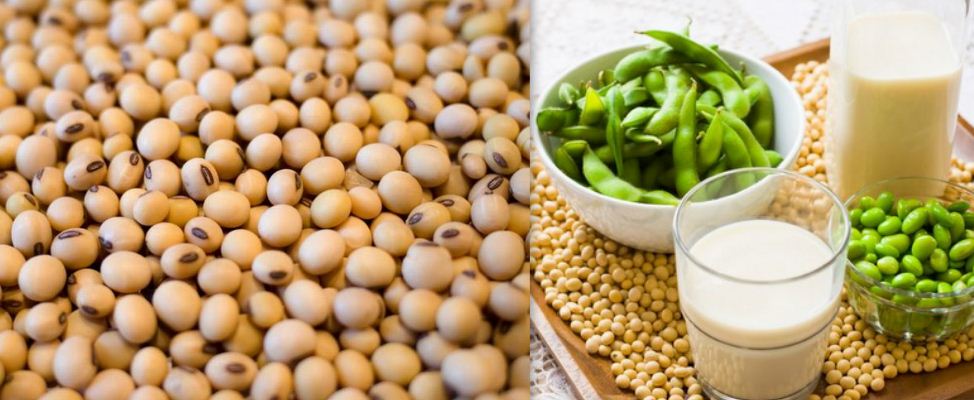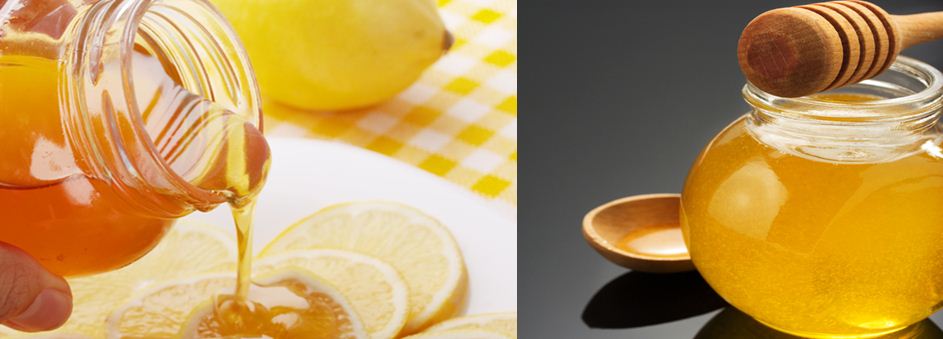About Soybean and its Health Benefits

The incredible health benefit of soybeans includes being rich in protein and vitamin, helping to prevent cardiovascular diseases, having high mineral content, promoting weight loss, and helping to soften the skin.
It also helps relieves depression, contains phytic acid, helps to prevent stroke and heart failure, prevents stroke and heart failure, fights against cancer, is suitable for pregnant women, boosts brain functioning, and prevention of diabetes.
Here are some significant health benefits of soybean you should know.
1. Rich in Protein
Soybeans are rich in protein and contain peptides such as lunasin, glycinins, and more which all help maintain an average level of blood sugar, improving the function of the body’s immune and the regulation of the blood pressure.
Protein also helps fight against viruses and illnesses in the body, which is why you must consume protein supplements such as soybeans even if you want to avoid meat because of its high cholesterol.
2. Rich in Vitamins
The presence of vitamins in Soybeans, especially vitamin E, acts as an antioxidant and helps moisturize the skin by replacing dead skin with new ones, reducing wrinkles and scaly or dry skin, and slowing the rate of aging naturally.
Mix ground soybean with water and massage gently on your face for about 25 to 30 minutes three to four times a week, and see yourself looking young and glowing.
3. Helps to Prevent Cardiovascular Diseases
It is also suitable for preventing cardiovascular diseases because of its rich content of Omega 3 Fatty Acids, which are also good for the brain and other behavioral functions.
It contains phenolic acids and genistein, which are known for their excellent antioxidant properties, and because of the presence of these phytonutrients, it makes soybean beneficial to health as it will aid in the prevention of certain diseases in the body.
4. High Mineral Content
The minerals in soybeans are beneficial to health;
a) The presence of zinc helps to prevent ear infections which can lead to hearing loss, and boost the general immune system and functions.
b) It is rich in mineral-like iron, which helps provide human red blood cells with iron-containing substances known as hemoglobin and is known for its role in blood production.
c) Calcium which can be found in soybean, helps build the bone structure and the teeth.
d) Magnesium helps improve the bone and prevent and treat problems such as osteoporosis. This mineral content also helps eliminate insomnia and difficulty sleeping, making you sleep peacefully at night.
The minerals mentioned above help boost brain health faster.
5. Promotes Weight Loss
It is suitable for weight loss because it contains low sugar and is high in polyunsaturated fats, regarded as good fats as they aid in reducing high cholesterol in the body. The presence of dietary fiber aids in food digestion.
6. Soybean Helps to Soften the Skin
Soybean keeps the skin healthy and balanced by looking hydrated all day long. It serves as a skin moisturizer preventing dry and rough skin. It also removes excess oil from the skin for those with oily skin.
7. Good for Women in Menopause
The content of phytoestrogen in soy helps women during menopause because, in this stage, the body’s natural production of estrogen tends to stop, and of which symptoms might occur, therefore; this phytoestrogen now acts as a weak estrogen that helps relieve those symptoms by slightly boosting levels.
8. Relieves Depression
Folate content in soybean helps to lower depression and mood disorders. Consumption of soybeans helps your body to fight depression by balancing the serotonin production process, which an imbalance might influence mood that could lead to depression.
9. Treats Inflammation
Soybeans' content is made of anti-inflammatory properties necessary to treat many serious illnesses. Inflammation of the body can lead to cancer or arthritis if not correctly taken care of. It contains alpha-linolenic acid, which reduces inflammation in the body system.
Recent studies prove that soybean is beneficial to health as it helps treat problems associated with inflammation.
10. Contains Phytic Acid
Soybean contains phytic acid that acts as antioxidants that fight against diseases such as cancer, inflammation, tumor, diabetes, etc.
11. Helps Prevent Stroke and Heart Failure
A good level of soy intake helps to decrease cholesterol and do away with the layers formed on the surface of your arteries due to the fiber content. It can help to prevent the chances of getting a stroke or heart failure.
Soybeans also contain fatty acid, which helps decrease blood pressure and build a healthy cardiovascular system.
12. It Regulates the Digestive System
Due to the high fiber content in soybeans, studies show that appropriate consumption helps in treating many digestive problems, regulates the digestion process, and fights the toxins from your body.
Individuals suffering from constipation, diarrhea, or bloating should effectively use soybeans to maintain a smooth digestion process.
13. Fights against Cancer
Soybeans help to fight against cancer in the body due to their richness in antioxidants. These antioxidants make soybeans effective for nullifying the free radicals in your body that lead to cancer.
It also reduces the risk of developing breast cancer, as an experiment by researchers proved that women who consume soybeans frequently are less likely to develop breast cancer.
14. Good for Pregnant Women
Soybeans are highly rich in mineral nutrients such as Vitamin B Complex and Folic Acid, which is essential for pregnant women as it helps to reduce the risk of congenital disabilities caused by low levels of folic acid and vitamin B complex.
15. Boost Brain Functioning
Soybean contains phytosterols that help increase nerve cells' function in the brain. It sharpens your memory and keeps you focused.
This also contains a vital nutrient for the brain known as lecithin. This nutrient helps patients suffering from Alzheimer’s disease.
16. Controls Diabetes
Soybean contains isoflavones and magnesium, which reduces insulin resistance, thereby increasing insulin receptors synthesis in the body, which benefits those suffering from diabetes.
It is advised that adding soybean to your diet helps the body to control diabetes and other problems relating to insulin metabolism and blood sugar.
Nutritional Value of Soybeans (100g)
|
Energy |
1866 kJ |
|
Carbohydrates |
30.16 g |
|
Protein |
36.49 g |
|
Vitamin A |
1 g |
|
Vitamin B6 |
0.377 mg |
|
Riboflavin |
0.87 mg |
|
Thiamine |
0.874 mg |
|
Vitamin B |
12 0 g |
|
Vitamin C |
6.0 mg |
|
Vitamin E |
0.85 mg |
|
Vitamin K |
47 g |
|
Calcium |
277 mg |
|
Copper |
1.658 mg |
|
Zinc |
4.89 mg |
|
Magnesium |
280 mg |
|
Iron |
15.7 mg |
|
Potassium |
1797 mg |
|
Sodium |
2 mg |
What are Soybeans?
Soybean is a legume and edible bean which are grown for its use, especially for the production of its functional derivatives, as it contains essential nutrients that are beneficial to the body.
It is one of the food crops which gives protein and is highly recommended by most health practitioners to be used as a supplement to our daily meals.
It can also be processed into soybeans powder, which can serve as a part of the daily meal and also used for Soy vegetable oil, which is better than some of the vegetable oils found in the market because it contains not just fats but healthy fats.
Uses of Soybeans
Soybean can be used in various ways while maintaining their nutrients. Mainly it is used to produce soymilk or soya milk, which is excellent to taste.
But most people, especially those lactose intolerant, might want to refrain from it or reduce their intake because it might lead to bloating, cramping, and others due to its inability to digest lactose which can be found in soybeans or soymilk.
Summary
The nutrients that can be found in soybean are numerous as it contains omega-3 fatty acids, copper, iron, calcium, protein, thiamine, magnesium, vitamin K, zinc, phosphorus, molybdenum, dietary fiber, potassium, manganese, vitamin B12, B6, K, A, and E.
Because of its uncountable nutritional benefits, it is almost timely substituted as a portion of baby food, and as much as soybeans or its derivatives are generally safe for consumption.
It is also good to know that it can trigger some health conditions, such as those with iodine deficiency, as it can affect the function of the thyroid, which can lead to thyroid diseases such as goiter, increase the risk of developing kidney stones and allergic reactions, so it is advised not to consume a high amount of it constantly.




